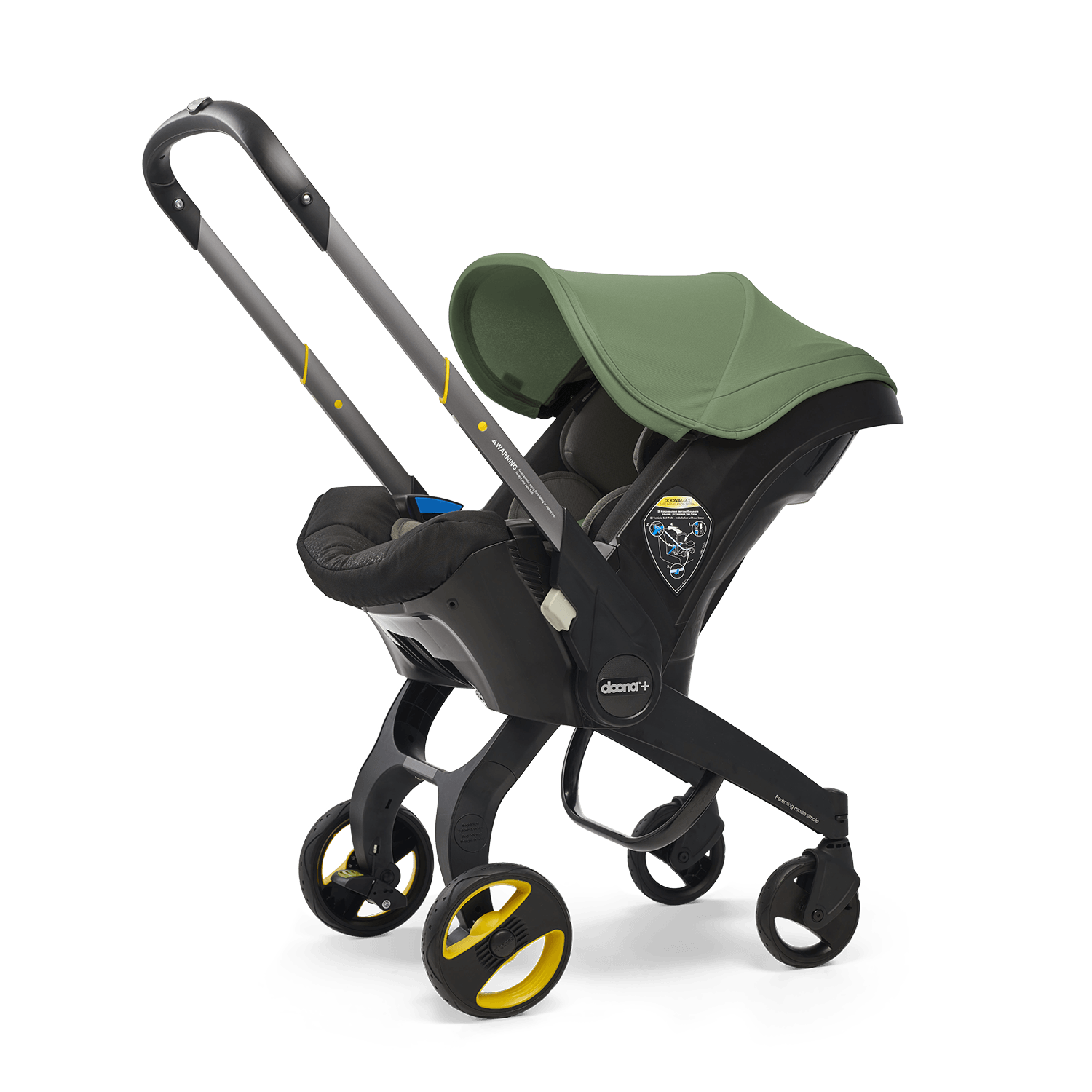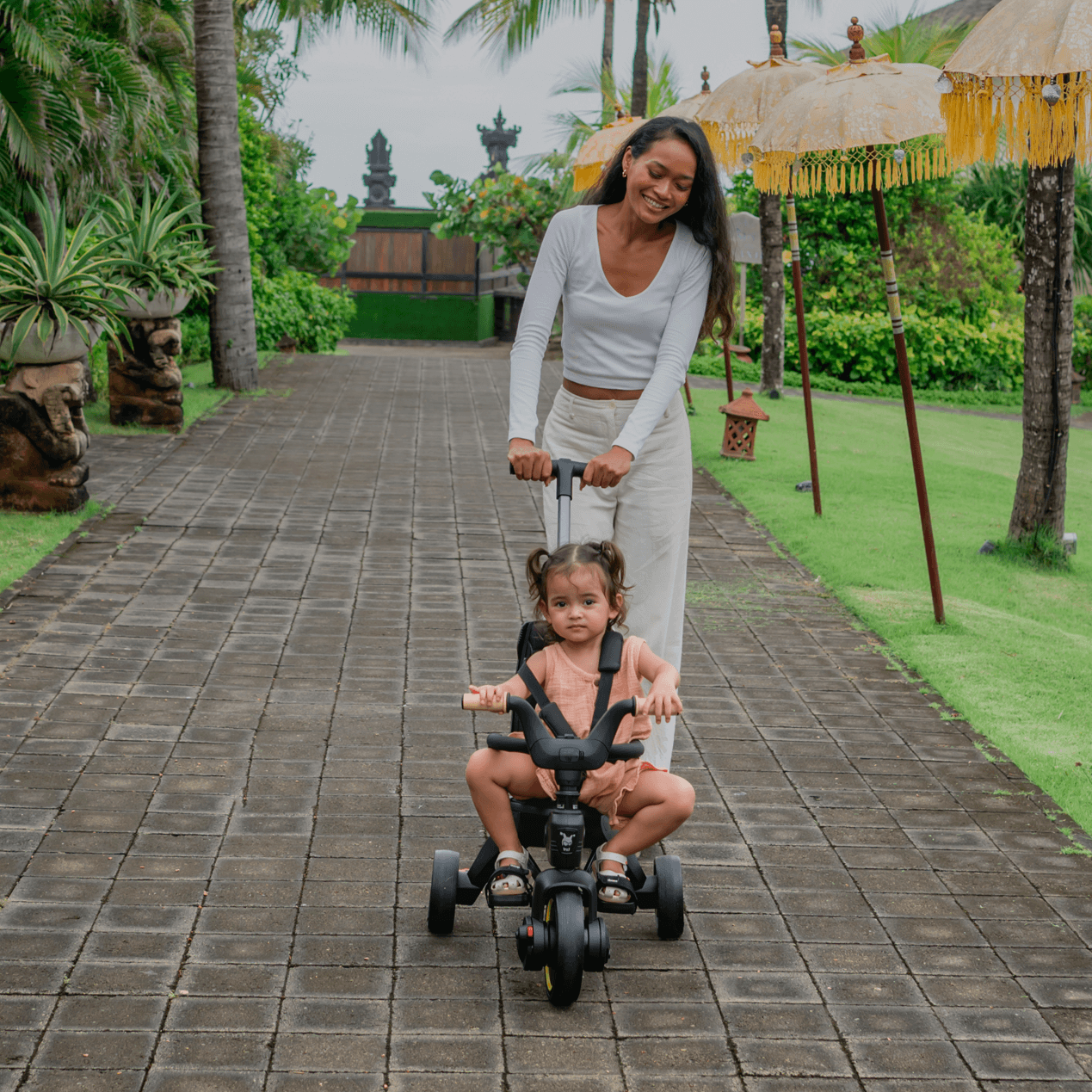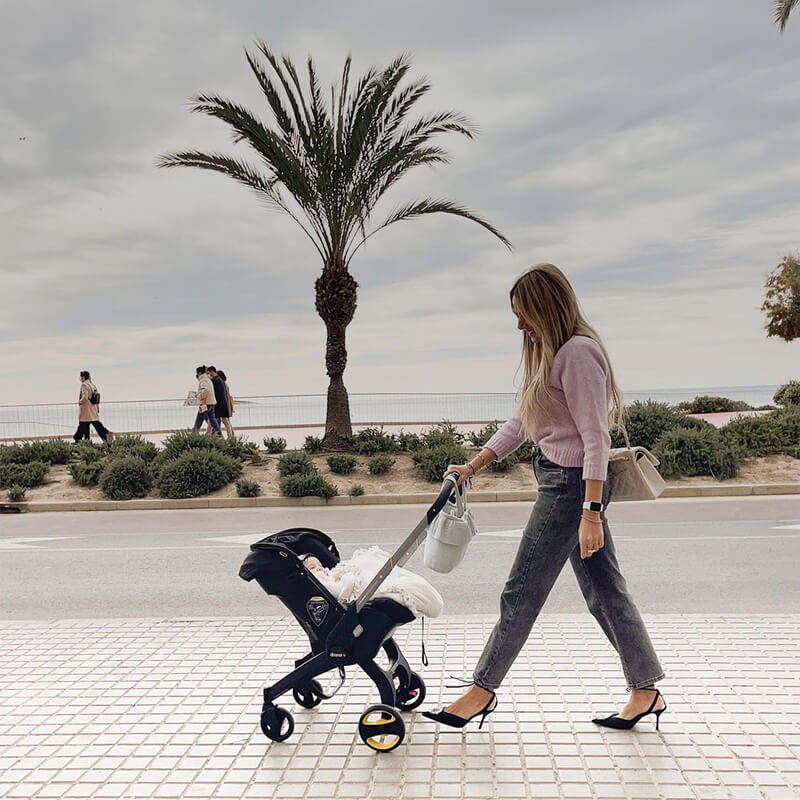Insights on evidence-based parenting with Emily Oster
We invited Emily Oster, renowned economist, best-selling author, and the voice behind ParentData to join us for an Instagram live. ParentData is a platform that empowers millions of families with evidence-based answers to some of parenting’s biggest questions.
In case you missed it, Emily shares her insights on how data and parenting intersect, debunks certain parenting myths, and shares what she wishes more parents knew and believed about raising kids. Whether or not you’ve read Emily’s books like Expecting Better and Cribsheet, or follow along with ParentData, you won’t want to miss this informative conversation!
You’ve built an incredible platform with ParentData, bringing evidence-based insights to everyday conception, pregnancy, and parenting decisions. What inspired you?
When I first started writing about pregnancy with Expecting Better, I was inspired by my own experience. The experience of being pregnant was more frustrating than I thought it would be, and I wanted a lot of answers that I didn't have answers to.
The impetus for building ParentData was really other people's questions. So as I had written these books, I was like, okay, I have these books out and here they are. But people kept coming. They kept coming with questions that I didn't answer in the books or things they wanted to go deeper.
And this really has been an incredible opportunity to meet people where they are with those questions. And in a lot of cases, increasingly trying to dial down people's panic. I think we're at a moment in which there's a lot of anxiety, probably even more than there was 15 years ago, and I feel like I have a great opportunity to say, take a deep breath. Don't think about that so much—here's the data.
I feel like part of what's happened is we've gotten much more information, which should be good, but isn't always good, partly because that information is often coming at you when you're not ready to process it. You're just trying to enjoy yourself and then someone's like, here's what you're doing wrong with your kids. And that's not helpful. The other thing is there is an increasing interest in evidence and data, but not all data is created equal. Some of what we see online is people saying, well, here's what the evidence says. But actually, if you dig into it, that's not a good piece of evidence. And so much of what I try to do is say, here's what all the evidence says. Here's what you can actually learn from the data, and not just what somebody has cherry picked from one study to support some view that they already had.
As you’ve built this data-driven approach, and as a mom of two yourself, how has your own parenting evolved over the years? Has diving into the research changed how you approach things at home?
There's two answers to that. When my kids were little, there were things that I was researching in the service of my own books, that then influenced my own pregnancy, my own parenting. At some point I was writing a book that involved thinking about discipline and in fact, we were like, oh, actually we're not doing this right, we need to do this other thing. So there were a few times like that where the work that I'm doing influences the parenting that I'm doing.
My kids are now much bigger than most of the children of the audience that I have, which has been an interesting experience because I think it provides a kind of perspective. My head is still so much in the evidence and research around little kids, but also I have this perspective as a parent of a 14-year-old. Eventually your kid's going to poop in the potty and we can help you get there. But just having the perspective to be like, take a deep breath.
"Two different families can see the same data, the same evidence, and they can have different preferences and they can make a different decision. And both of those decisions can be right."
You also talk a lot about trade-offs—something every parent faces daily. How can families get more comfortable making decisions that might not be popular, but work best for them?
First, when we make decisions, we should always remember that there are two important inputs. One is, maybe it's data, it's facts. What do you know about this behavior or the impacts this would have? And then there's a second piece, which is your preferences.
Two different families can see the same data, the same evidence, and they can have different preferences and they can make a different decision. And both of those decisions can be right. And I think that means when you see someone who does something different, when you see this person not making the same choice as you—even though it's natural for us to process that as either they're doing it wrong or they're judging me—if we can process that as, well, they must have a different set of preferences, right? It's actually far more neutral.
Of course they're not always going to make the same choices because they're not facing the same constraints. They don't have the same likes, not the same stuff. And I think that if we can absorb that, there's a power in making the choices that are best for us.
The internet is hard for this because you get a lot of feedback that's not even feedback, it’s front feed, when you haven't even made the decision and already people are telling you what you did wrong. But then if you ever say something about any of these controversial choices, people feel free to come on and be like, here’s all the ways in which you're terrible. Sometimes it feels very subtle and sometimes it's very direct.
What are some of the most popular questions you receive from your subscribers?
I think the big popular topics are screens, food, sleep, and maybe poop. It’s the same things we're all doing, what your kids are doing every day. I think what a lot of those people are looking for is, ‘is this normal?’ I would say the two most popular phrases in the questions are, ‘should I panic’ and ‘is this normal?’ I think that reflects a lot of parenting. It is a lot of, ‘how can I get my kid to sleep more?’ And eat vegetables. It’s these everyday things that are just hard.
"Something that I wish more people would embrace is the realization that your relationship with your partner, if you have one, is a really important part of your parenting."
How do you handle backlash or the spread of misinformation on certain topics you cover, and what strategies do you use to maintain credibility and trust with your audience?
I try to maintain credibility and trust by being pretty straightforward about where the data is from and explaining why I think what I think, and being willing to come back and say, the thing I said here was wrong, and here is some updated information. I think that's part of how we always develop trust is admitting when we're unsure and then admitting when we’ve made mistakes.
Online misinformation has been a huge issue, for a long period of time, but particularly more recently. And it's really tough. It feels a bit like whack-a-mole, there's a million of these things and they look credible. The people purveying this misinformation look just like the people purveying the positive, correct information and some of what they're saying is so appealing because it suggests easy solutions to hard problems.
They're saying, ‘comment supplement for this supplement that's going to fix all your problems,’ and I would enjoy a supplement that fixes all my problems. It’s not real though. I think some of it is just constantly coming back and reminding people how they can process that themselves without needing me to be there and say no, that one is misinformation. How can you evaluate for yourself if it’s misinformation? So much of it is just, take a breath and say, does this seem plausible? Let me give it a minute to process, and come back to this later when I'm better able to think about whether it's actually real.
If you could debunk one parenting myth, and spotlight one truth you think more families should embrace, what would they be?
Right now a myth, honestly, would be vaccines cause autism, which is in my thread all the time. Vaccines don't cause autism. I know that's a popular one to want to debunk, but I just wish that we had some piece of evidence that people, even though we have so much evidence, I wish we had some piece of evidence that people would find more compelling.
Something that I wish more people would embrace is the realization that your relationship with your partner, if you have one, is a really important part of your parenting. I think we get really, really focused on our kids, and that's understandable. We should focus on our kids. But if there are two parents in the household, their relationship is also a really important part of crafting the family and one that often with little kids, we sort of assume will still be there and actually it's something that requires investment.
Emily Oster is the founder and voice behind ParentData, a community that helps parents feel informed, confident, and supported in the choices they make for their families. Follow Emily on Instagram @profemilyoster, or check out parentdata.org for evidence-based parenting advice.
At Doona, we’re committed to making parenting simple for every family. That's why we’ve created our innovative and revolutionary Doona Car Seat and Stroller, transforming from car seat to a stroller in seconds; and Liki Trike — the most compact folding toddler trike on the market that grows alongside your toddler from 10-36 months.

















